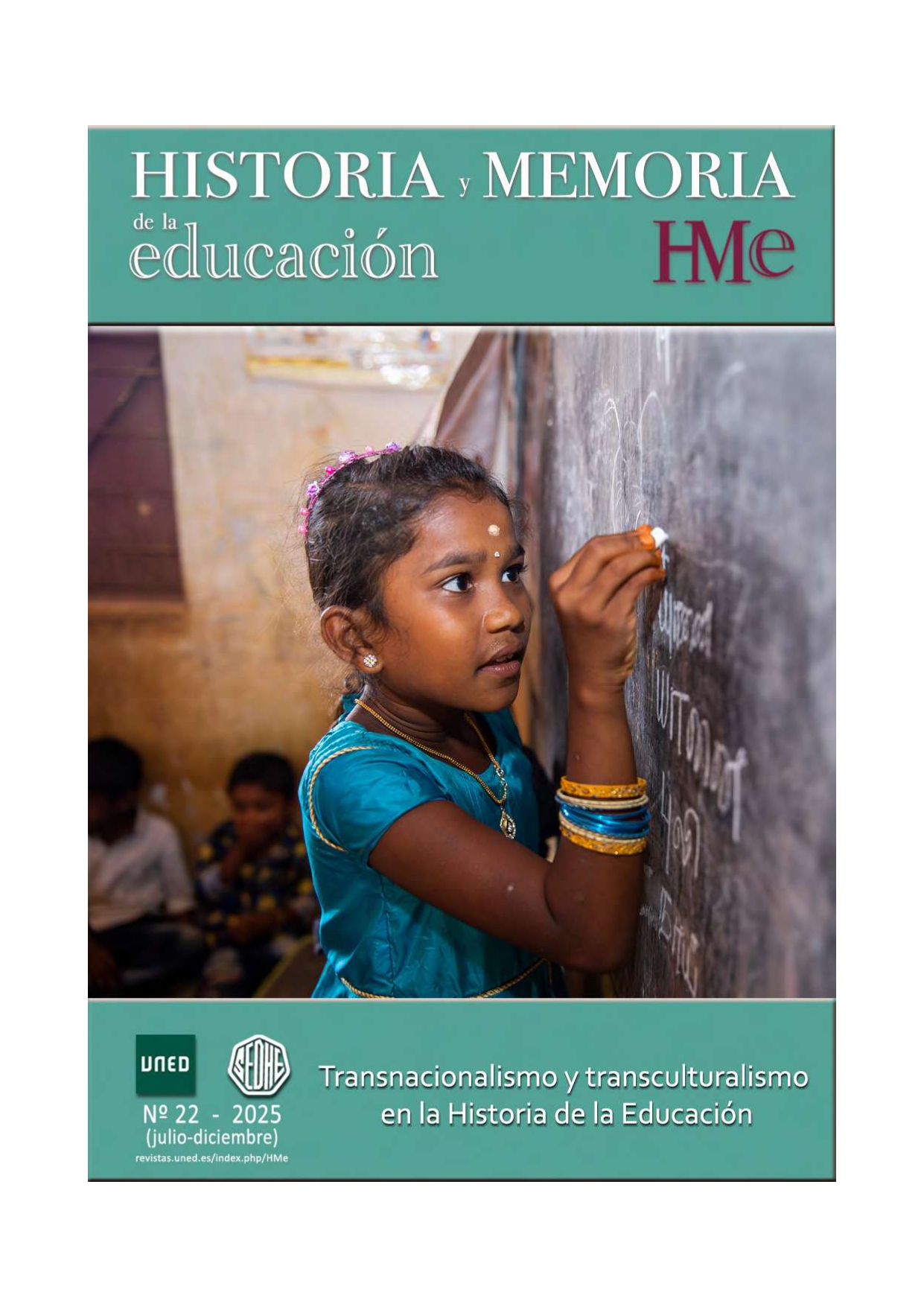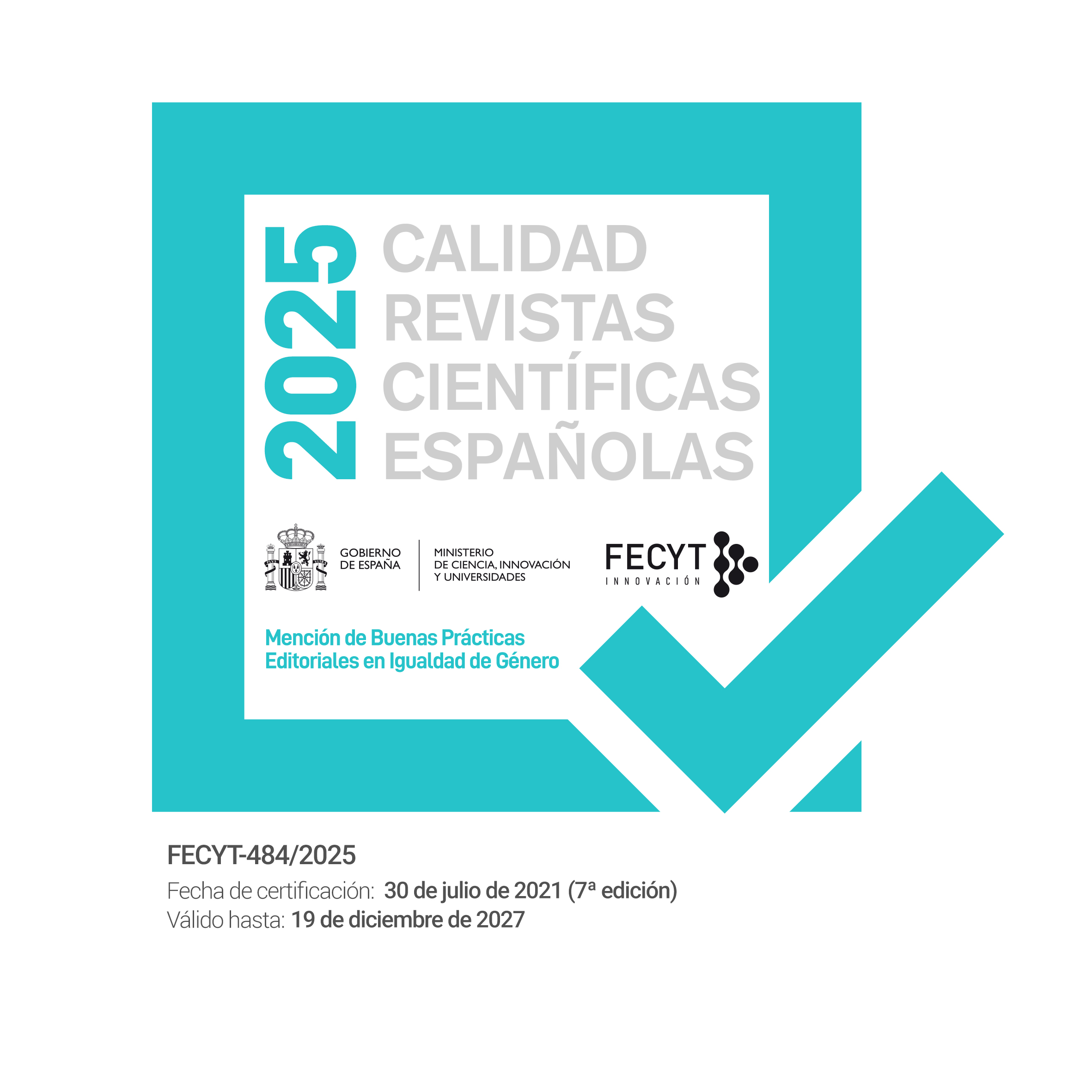Forging Transnational Connections: The Role of the UNRA University and the Baltic University shaping Potwar Educational Landscapes
DOI:
https://doi.org/10.5944/hme.22.2025.42875Keywords:
Baltic University, Displaced Persons, Higher Education, International Collaboration, UNRRAAbstract
This article aims to address a gap in the historiography of the higher education of displaced persons (DPs) by analysing the efforts of forced migrants from the Baltic States to reconstruct higher education in exile. It focuses on the establishment and evolution of the UNRRA University and the Baltic University, two significant educational institutions created for DPs in postwar Europe. Through a comparative analysis, the study underscores the role of education in shaping transnational identities and addresses the complexities of establishing educational spaces for DPs in the postwar context
It explores how the concepts of transnationality and transculturality were reflected in the UNRRA and Baltic universities as displaced persons sought to implement these ideas by drawing on their national educational traditions while navigating cultural differences.
The UNRRA University was founded in Munich in 1945 by professors and students mainly from Soviet-occupied countries, aiming to foster international cooperation and revitalise humanism among a diverse, multilingual student body. Despite initial success, shifting Allied priorities led to its eventual dissolution in 1947, highlighting the fragility of transnational educational initiatives in politically charged environments.
The Baltic University was conceived by Lithuanian, Latvian, and Estonian refugees seeking to maintain their cultural identities and academic pursuits. Established in 1946, it aimed to unite the three Baltic nations in their quest for higher education while navigating challenges posed by nationalistic tendencies and external pressures from authorities. Although the Baltic University fostered collaboration, it ultimately faced instability due to competing interests and changing administrative directives.
Downloads
References
Antons, Jan-Hinnerk. «Displaced Persons in Postwar Germany: Parallel Societies in a Hostile Environment», Journal of Contemporary History 49, no. 1 (2014), https://doi.org/10.1177/0022009413505659.
Bartusevičius, Vincas. Lietuviai DP stovyklose Vokietijoje [Lithuanians in DP camps in Germany], 1945–1951. Vilnius: Versus Aureus, 2012.
Berger, Joseph A. «Displaced Persons: A Human Tragedy of World War II», Social Research 14, no.1 (1947).
Drėmaitė, Marija. «Baltic Architectural Education in Times of Crisis: Faculty of Architecture at the Baltic University in Germany, 1946–1949», Architecture and Urban Planning, 20, no. 1 (2024) https://doi.org/10.2478/aup-2024-0006.
Drėmaitė, Marija. «“Migrant Modernists: The Making of National Architects in Lithuania in the 1930s and Their Survival Strategies in the 1950s», Journal of Modern European History 18, no. 4 (2020), https://doi.org/10.1177/1611894420943041.
Fox, Grace. «The Origins of UNRRA», Political Science Quarterly 65, no. 4 (1950): 561–584.
Gimbutas, Jurgis. Pokario UNRRA universitetas Münchene [Postwar UNRRA University in Munich]. Litauisches Kulturinstitut Jahrestagung 1996 Suvažiavimo darbai. Lampertheim: Litauisches Kulturinstitut, 1997.
Grāmatiņš, Arnolds ed. Baltijas universitāte [Baltic University]. 1946–1949. Minstere, 1989.
Hilton, Laura. «Cultural Nationalism in Exile: The Case of Polish and Latvian Displaced Persons», The Historian, 71, no. 2 (2009), https://doi.org/10.1111/j.1540-6563.2009.00238.x.
Knapton, Samantha K. «UNRRA: You Never Really Rehabilitate Anyone: Problems of Rehabilitation in Definition and Practice». In Relief and Rehabilitation for a Post-War World: Humanitarian Intervention and the UNRRA, edited by Samantha K. Knapton and Katherine Rossy (Bloomsbury Publishing, 2023).
Knapton, K. Samantha and Katherine Rossy, «Relief and Rehabilitation: UNRRA in Historical Perspective». In Relief and Rehabilitation for a Post-War World: Humanitarian Intervention and the UNRRA, edited by Samantha K. Knapton and Katherine Rossy (Bloomsbury Publishing, 2023).
Kruger, Lee. Logistics Matters and the US Army in Occupied Germany, 1945–1949 (Springer, 2016).
Łaptos, Józef. Gdy UNRRA tworzyła katedry. Uniwersytet w Monachium dla środkowoeuropejskich "dipisów" (1945–1948). Prace Komisji środkowoeuropejskiej PAU, rok: 2014, tom: XXII.
Liulevičius, Vincentas, ed. Lietuvių švietimas Vokietijoje [Lithuanian Education in Germany]. Chicago, 1969.
Matasci, Damiano, and Joëlle Droux. «(De)Constructing the Global Community: Education, Childhood and the Transnational History of International Organizations». In The Transnational in the History of Education: Concepts and Perspectives, edited by Eckhardt Fuchs and Eugenia Roldán Vera (Palgrave Macmillan Cham: 2019).
Mayer, Christine. «The Transnational and Transcultural: Approaches to Studying the Circulation and Transfer of Educational Knowledge». In The Transnational in the History of Education: Concepts and Perspectives, edited by Eckhardt Fuchs and Eugenia Roldán Vera (Palgrave Macmillan Cham: 2019).
Petrulis, Vaidas, Brigita Tranavičiūtė and Paulius Tautvydas Laurinaitis. Jonas Mulokas: architektūrinio identiteto paieškos globaliame pasaulyje (Kaunas, KTU leidykla Technologija, 2024), https://doi.org/10.5755/e01.9786090218747.
Reinisch, Jessica. «Internationalism in Relief: The Birth (and Death) of UNRRA», Past and Present 210, no.6 (2011), https://doi.org/10.1093/pastj/gtq050.
Reinisch, Jessica. The Perils of Peace: The Public Health Crisis in Occupied Germany (Oxford University Press, 2013).
Reinisch, Jessica. «“We Shall Rebuild Anew a Powerful Nation”: UNRRA, Internationalism and National Reconstruction in Poland», Journal of Contemporary History 43, no. 3 (2008), https://doi.org/10.1177/0022009408091835.
Roldán, Eugenia Vera, and Eckhardt Fuchs. «Introduction: The Transnational in the History of Education». In The Transnational in the History of Education: Concepts and Perspectives, edited by Eckhardt Fuchs and Eugenia Roldán Vera (Palgrave Macmillan Cham: 2019).
Rossy, Katherine. «The Forgotten “R”: UNRRA’s Central Tracing Bureau and the Recovery of Missing Persons in Post-War Germany, 1945–7». In Relief and Rehabilitation for a Post-War World: Humanitarian Intervention and the UNRRA, edited by Samantha K. Knapton and Katherine Rossy (Bloomsbury Publishing, 2023).
Rudnyćkyj Bohdan Jaroslav. Slavic and Baltic Universities in Exile (Winnipeg, 1949), 9.
Rūsis, Armins. «Atminas par UNRRA’s universitāti Minhenē», Universitas: scientiae et patria 6 (1959).
Saldukas, Linas. «Lietuvių ir latvių tautinės tapatybės išsaugojimo siekiai dP stovyklose Vokietijoje», Oikos 1 (2012).
Salvatici, Silvia. «“Help the People to Help Themselves”: UNRRA Relief Workers and European Displaced Persons», Journal of Refugee Studies 25, no. 3 (2012), https://doi.org/10.1093/jrs/fes019.
Shephard, Ben. The Long Road Home: The Aftermath of the Second World War (Random House, 2011).
Slatt, Vincent E. «Nowhere to Go: Displaced Persons in Post‐V‐E‐Day Germany», The Historian 64, no. 2 (2001), https://doi.org/10.1111/j.1540-6563.2002.tb01483.x.
Tarulis, N. Albert. «Sorrows of the Young Baltic University», Bulletin of the American Association of University Professors 1915–1955, 34, no. 4 (1948).
United Nations Relief and Rehabilitation Administration. UNRRA: The history of the United Nations Relief and Rehabilitation Administration 3 (Columbia University Press, 1950).
Wyman, Mark. DPs: Europe’s Displaced Persons, 1945–51 (Cornell University Press, 1998).
Zittel, Bernhard. «Die UNRRA-Universität in München 1945–1947», Archivalische Zeitschrift 75, no.1 (1979).
Downloads
Published
How to Cite
Issue
Section
License
Copyright (c) 2025 Historia y Memoria de la Educación

This work is licensed under a Creative Commons Attribution-NonCommercial 4.0 International License.
Authors who publish in Historia y Memoria de la Educación agree to the following terms:
- Authors retain copyright and grant the journal right of first publication with the work simultaneously licensed under a Creative Commons Attribution-NonCommercial 4.0 International that allows others to share the work with an acknowledgement of the work's authorship and initial publication in this journal.
- Authors are able to enter into separate, additional contractual arrangements for the non-exclusive distribution of the journal's published version of the work (e.g., post it to an institutional repository or publish it in a book), with an acknowledgement of its initial publication in this journal.
- Authors are permitted and encouraged to post their work online (e.g., in institutional repositories or on their website) prior to and during the submission process, as it can lead to productive exchanges, as well as earlier and greater citation of published work (See The Effect of Open Access).












